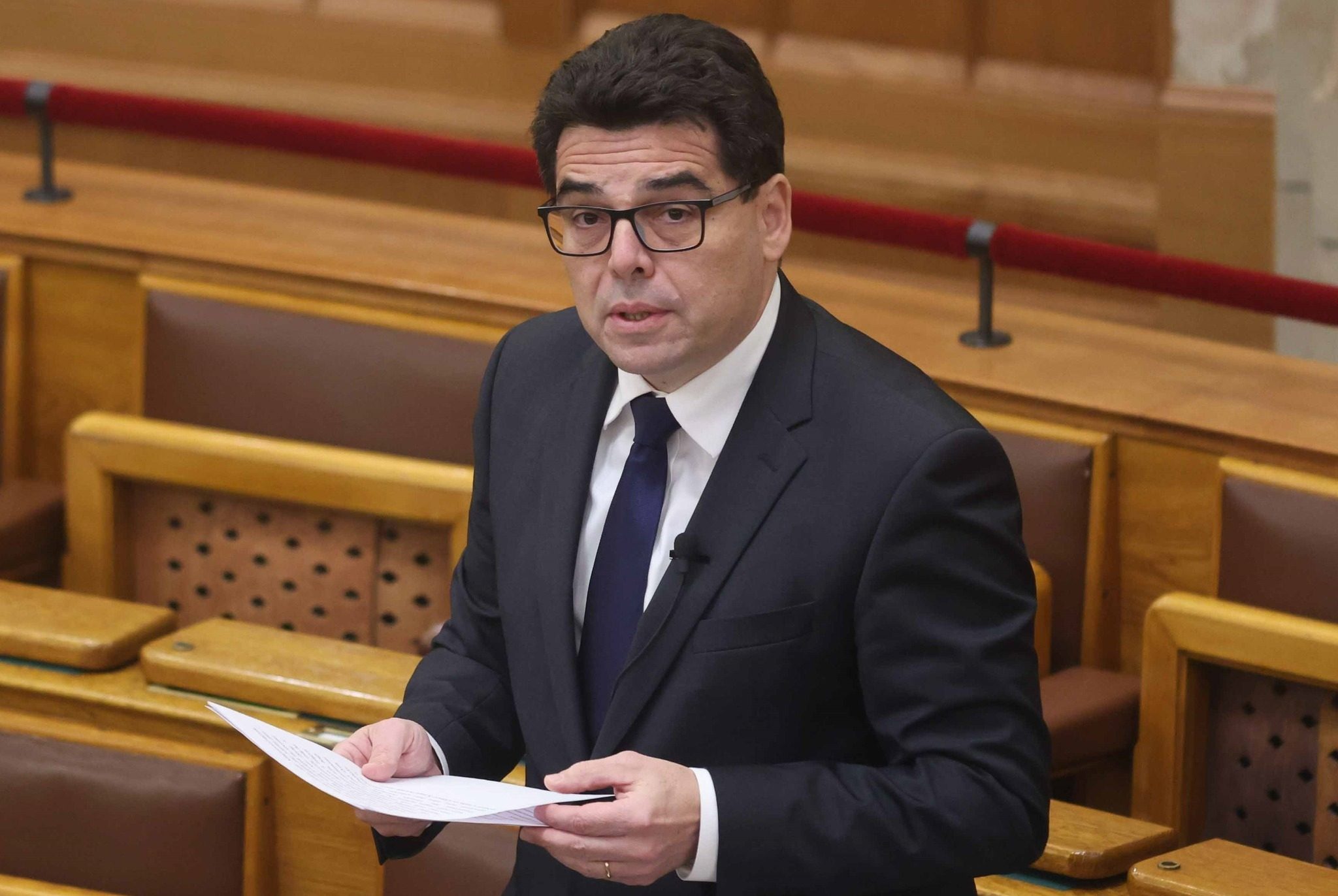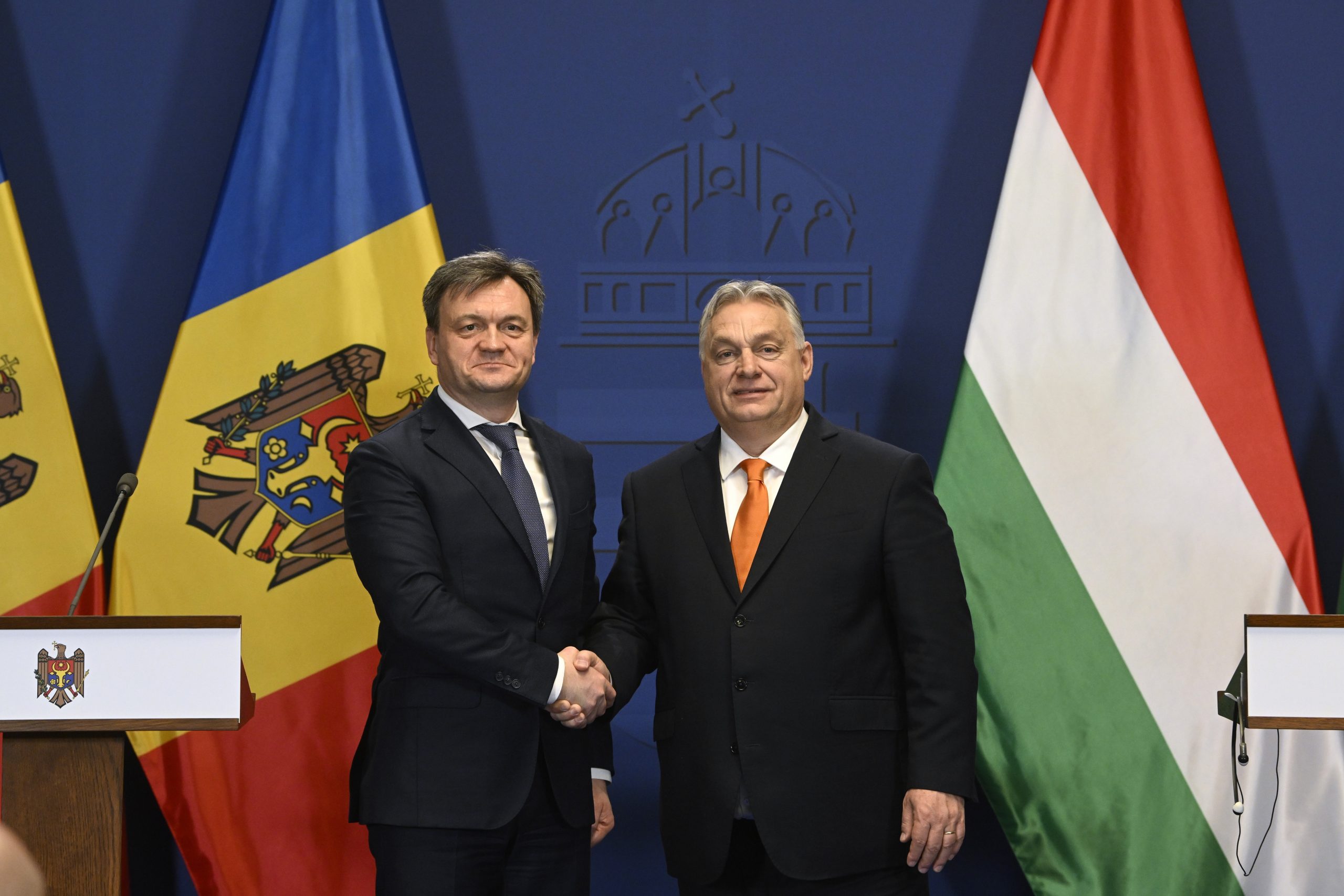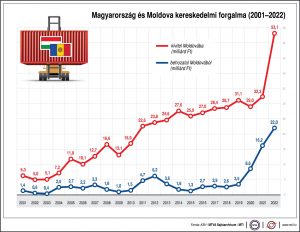
The government will represent the Hungarian position as expressed in the national consultation.Continue reading

Moldova will continue to rely on Hungary’s support in the EU integration process, emphasized Prime Minister Dorin Recean, after talks with the Hungarian Prime Minister in Budapest on Thursday.
Following discussions with Viktor Orbán in Budapest on Thursday, Prime Minister Dorin Recean expressed anticipation for Hungary’s upcoming EU presidency in July, while highlighting Moldova’s dependence on Hungary’s ongoing support in the European integration process. Mr. Recean extended gratitude to Prime Minister Orbán and President Katalin Novák for supporting Moldova’s EU membership and facilitating opportunities for young Moldovans at the Hungarian Diplomatic Academy to promote EU integration.
Orbán stressed that the two countries have no outstanding issues and view each other positively, seeking cooperation. However, he noted that for some reason, the density and strength of diplomatic relations are not what they should be. Orbán added that the aim of the current meeting is to establish closer cooperation, as there is every basis for the two countries to work together much better than they have done so far.
Hungary has always supported Moldova’s EU membership, and we will continue to do so; there is no compromise, no discussion,”
he said. Moldova is steadily progressing towards EU membership, and Hungary acknowledges the geopolitical context that necessitates expedited accession.

Dorin Receant and Viktor Orbán. Photo: MTI / Miniszterelnöki Sajtóiroda, Fischer Zoltán
“It is not only that EU membership is good for Moldova, but also that the European Union needs new energy. The EU seeks countries recognized for their balance, stability, and a population eager to contribute to the work,” the Prime Minister stated in a joint press statement with his Moldovan colleague. He remarked that the eight years since Moldova signed the association agreement with the European Union were “an insultingly long time,” and expressed hope that the speed of the accession negotiations would allow some of the lost time to be made up. Hungary has already completed its accession to the EU, so it is understood that this is an extremely difficult task, Orbán acknowledged.
The two countries have been in diplomatic relations for 32 years, signed a strategic partnership agreement four years ago, and trade today between Hungary and Moldova has reached a record high, the USD 200 million mark, a level they are seeking to raise further.
During the negotiations, it was agreed that WizzAir would restart direct flights between Budapest and the Moldovan capital.
Hungary would like to see a duty-free relationship between Moldova and the European Union. As both countries import the energy needed for their economies to function, it is in the interest of both Hungary and Moldova to have the best possible energy networks in the Central and southeastern European region, thus guaranteeing economic and military security. Orbán concluded that there is an overlap between the two governments on all strategic issues.

Trade flows with Moldova (2001-2023). Picture: MTI
Following talks with Moldovan Deputy Prime Minister Vladimir Bolea, Minister of Foreign Affairs and Trade Péter Szijjártó said that the Hungarian position is clear: the performance of each country wishing to join the EU must be assessed individually.
The integration paths of different countries should not be linked, and countries that perform weaker should not be allowed to hold the European integration processes of other countries at a standstill,”
he said.
Mr. Szijjártó stated that Moldova’s accession would benefit the European Union. “We will continue to be at the disposal of the Moldovan government, as we have always been, and we will use all means at our disposal to help accelerate Moldova’s European integration process,” he added.
Via MTI; Featured Image: MTI / Koszticsák Szilárd